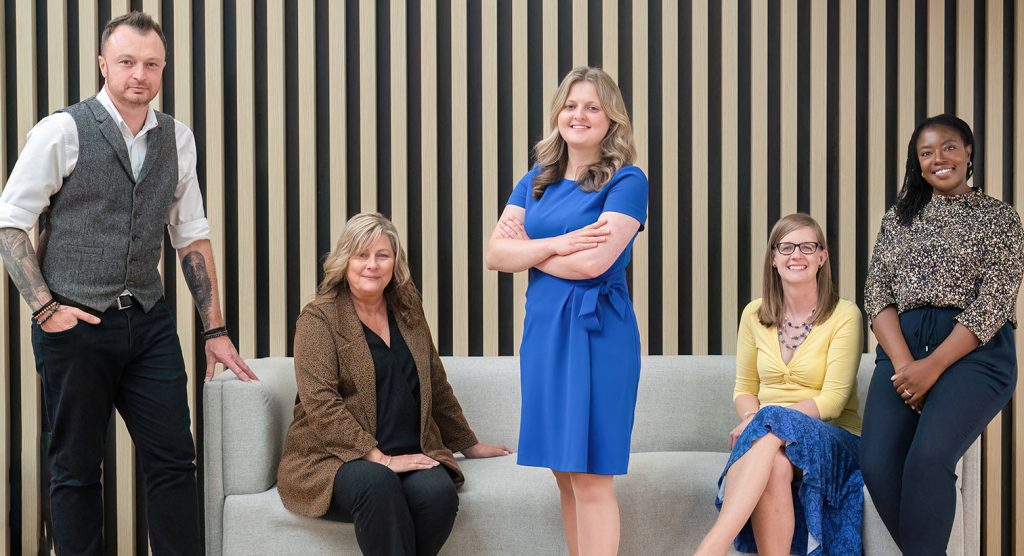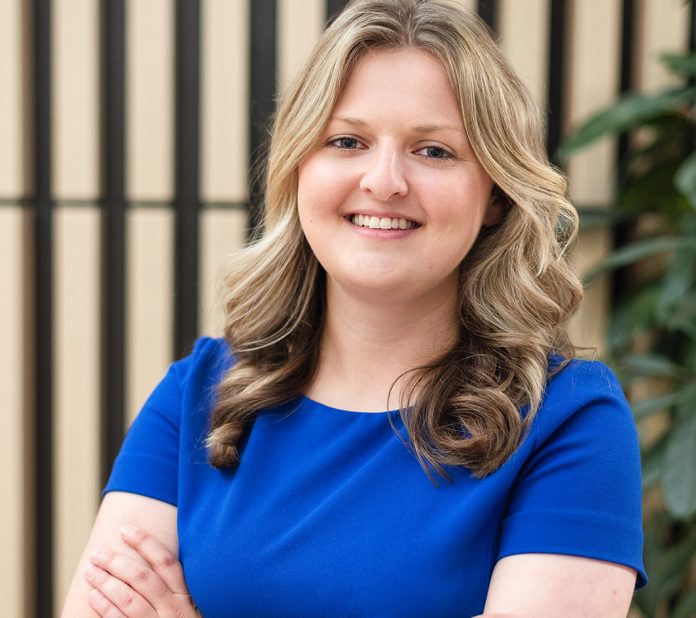Katie Buckingham was 19 when she started her business, Altruist Enterprises. Ten years on, she has built a team of experts who collectively have over 200 years of experience in the mental health training field. Here, she tells SME Magazine about her business journey.
Katie, you started your business when you were 19. What inspired you to do that?
I experienced the impact mental ill-health can have from a young age. At 10 years old, it became clear to me how detrimental mental health issues can be to individuals and those around them. So, when the opportunity arose to start a business in an environment like the Peter Jones Enterprise Academy, it was a natural choice to create something that was important to me and could make a real difference. After those core experiences at a young age, I founded Altruist based on my desire to reduce the stigma around mental health, raise awareness of mental health issues, and give employers the tools to support employee wellbeing – especially in potentially stressful environments like the workplace.
What do you remember of those days and what early lessons did you learn?
1. Businesses may have a problem, but it doesn’t mean they will pay for a solution
Stigma and differing opinions on the importance of mental health made Altruist a nicher proposition in the early days of the business. In sales meetings, employers would say things like “we don’t want to open a can of worms” or “we don’t have mental health here” – despite external surveys, reports, and conversations saying otherwise.
It was costing businesses money due to absenteeism, presenteeism, and staff turnover but businesses were reluctant to admit or unable to see that they had a problem and needed do something about it.
 We had the experience and evidence to know that there was a mounting problem in workplaces across the country and we were confident that we could help businesses to improve their wellbeing and mental health provision. So, I stuck at it until we reached more progressive, open-minded businesses that allowed us to build up our experience, knowledge and best practice.
We had the experience and evidence to know that there was a mounting problem in workplaces across the country and we were confident that we could help businesses to improve their wellbeing and mental health provision. So, I stuck at it until we reached more progressive, open-minded businesses that allowed us to build up our experience, knowledge and best practice.
2. Stick to your values when making decisions
Staying close to the Altruist values (Passion, Integrity, Care, Collaboration and Learning) when making decisions has been key to continued growth and success. Whether that’s in hiring, building relationships, or delivering training, maintaining the pillars that helped get Altruist to where it is today is essential.
3. Get a mentor
Working with experienced, successful people from all walks of life was an essential part of me learning some of the most important lessons in business. As a solo founder, you can only read, trial, and experience so many things, so hiring, collaborating with, and chatting to passionate and talented people is essential for personal growth as a leader and discovering things that can help your team and business grow.
That being said, it’s important not to take every single piece of advice from every person as gospel. Remembering the things I’ve achieved on my own, based on my own instincts, has allowed Altruist to stick to its roots and grow organically whilst retaining my core values.
4. Join a network
Entrepreneurship can be lonely, and sometimes others don’t understand why you do it. Especially in the early days, networking was key for being able to find like-minded people to share ideas with, or just to find people who can understand your struggles and reassure you. Networking events are run across the country and should be attended regularly by all entrepreneurs who want to broaden their horizons!
5. Failure is necessary for progress
Especially as a young entrepreneur, I learnt that failure isn’t just okay, it’s expected. When you start something at such a young age, setbacks can feel particularly damning, but it was so important to remember that they were all part of the process. Some of my biggest learnings come from failure, and the ability to receive feedback, learn from it, and adapt is a critical business skill.
Do you remember any particular challenges you have faced? How did you overcome them?
Being a sole founder means that you wear many hats. There will always be things you are good at and enjoy and things you need to work on, and they’ll be different for every single founder. For me, a priority when growing the business was to hire people who could compliment my own strengths and elevate any areas of weakness. With that criteria in mind, we have been able to recruit a diverse and excellent team that has helped overcome many challenges.
Another challenge I’ve faced throughout my career is that I’m a young woman in the business landscape so sometimes dismissed. Despite this, there have always been people who would go out of their way to help me in the face of adversity, and since establishing myself, I’ve gone on and achieve incredible personal milestones like TEDx talks and speaking events across the country.
After ten years, you are now taking your business in a slightly different direction. Tell us about that and what you hope to achieve.
Having been in the industry for some time, it’s been fantastic to see the growth in support for mental health services in the workplace. However, it also means that the mental health training market is reaching a saturation point. We’re using extensive experience to pivot our services and provide end-to-end consultancy on top of our existing training offering – from an initial audit stage, through to strategy development and implementation.
We’re hoping that by diversifying our offering, we can make the implementation of mental health support systems more accessible and more meaningful and bring a strategic, not just operational, approach.
Looking forward, where do you hope you will be doing in, say, five or ten years?
In five years, I hope that Altruist Enterprises will be a strategic wellbeing consultancy, an exciting step, and we will have retained our position as a leading authority in workplace wellbeing.
I also want to establish a sustainable Altruist Foundation, designed to support young people who are on the waiting list for mental health services. The foundation will offer youth the opportunity to take part in activities such as forest therapy and feature workshops and activities designed to build confidence, develop problem solving skills, and improve resilience.
On a personal note, over the next ten years I’m planning on using my experiences to continue to deliver talks, host panels, and share my expertise with emerging business owners and established founders alike.
What do you enjoy about your job?
I love developing products and services that solve problems and help people. With Altruist, this means showing businesses where they can better care for their employees and giving them the tools to do so. Thanks to my own personal experiences, I know how important mental health support is, and to be able to share that message is a wonderful opportunity.
I also love the variety of the job and the fact that no two days are the same. Whether that’s strategy, business development, or the opportunity to raise awareness of mental health issues, every day is still so new and exciting.


